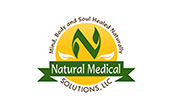Assisted Hatching IVF in Marietta, GA

In-vitro fertilization (IVF) makes it possible for thousands of women to conceive each year. During IVF, a woman's eggs are removed, and then fertilized with selected sperm in a laboratory setting. The fertilized egg, or embryo, is then surgically implanted into a woman's uterus.
Assisted hatching is an adjunct medical procedure that must sometimes be performed by an embryologist as part of the IVF process to aid in successful implantation of the embryo.
What is Assisted Hatching?
Surrounding the egg and eventually the embryo, there is a layer of proteins known as the zona pellucida, which begins to harden upon fertilization to prevent the entry of other sperm and to protect the newly-formed embryo from contamination or damage. The embryo must "hatch" from this shell which surrounds it, and this typically happens on the fourth day of embryo development. Once hatched, the embryo must attach itself to the uterine wall. Because there is a small window of time in which this process must occur, it can be catastrophic to the IVF procedure if hatching out of the zona pellucida becomes a problem.
Research has found that the thinner the layer of proteins is that surrounds the embryo, the easier it is for the embryo to hatch. A thickened zona pellucida can actually impede the success of IVF. However, assisted hatching—where the embryologist thins or creates an opening in the zona pellucida—can allow the embryo to more easily hatch and attach itself to the uterine wall.
To schedule a consultation with a fertility specialist in Marietta that is an expert in assisted hatching IVF, call (770) 674-6311 or contact Natural Medical Solutions Wellness Center online.
The Assisted Hatching IVF Procedure
Techniques used to assist embryo hatching involve thinning, dissection or drilling of the zona pellucida, using methods ranging from lasers to acid tyrodes, proteinases and others. The procedure is conducted in the laboratory by an embryologist working directly with the embryo. Assisted hatching is not a procedure performed on the woman's body, but rather on the embryo.
Depending on the type of assisted hatching recommended by your healthcare provider, the specifics of the procedure will vary. Methods involving the use of laser technology are increasingly considered safe for the embryo and more effective for successful attachment.
Candidates for IVF Assisted Hatching
Some clinics include assisted hatching in all fertility cases because it increases the chance of successful hatching and attachment, while others only use it when it is deemed necessary, like in cases where the woman is at an advanced maternal age. Ideal candidates for IVF assisted hatching are women who present with:
- One or more failed IVF cycles
- Poor embryo quality
- High levels of follicle-stimulating hormone (FSH)
The chances of having a thicker, more impenetrable zona pellucida especially increases in older women. The thickened zona pellucida can not only impede attachment of the embryo to the uterine wall, but also fertilization of the egg by sperm. For that reason, ICSI or intracytoplasmic sperm injection is often used to fertilize eggs which may present with unusually thick zona pellucida prior to fertilization. Therefore, the two procedures, ICSI and assisted hatching, are often performed in conjunction.
Assisted hatching is also elected in cases utilizing frozen embryo transfers, as the cryopreservation of embryos can affect the hardening of the embryo walls. It is also especially helpful if your fertility specialist has recommended pre-implantation genetic screening since the procedure allows the biopsy catheter to access the cells that need to be assessed.
Assisted Hatching Success Rate vs. Risks
Higher clinical pregnancy and implantation rates have been observed after assisted hatching. The health risks of the procedure to the patient are non-existent. There is some risk of embryo failure or damage involved in the procedure. There also may be a higher risk of having twins, especially identical twins. To minimize the risks associated with assisted hatching, it is vital to seek fertility treatments only from a skilled embryologist.
Schedule a consultation with a fertility specialist in Marietta that specializes in assisted hatching. Call (770) 674-6311 or contact Natural Medical Solutions Wellness Center online.
Natural Medical Solutions Wellness Center
Address
1130 Upper Hembree Rd.Roswell, GA 30076
(770) 674-6311
www.natmedsol.com
Hours
Mon:
9:00 am - 4:00 pm
Tue:
9:00 am - 4:00 pm
Wed:
9:00 am - 4:00 pm
Thu:
10:00 am - 6:00 pm
Fri:
9:00 am - 2:00 pm
Sat:
9:00 am - 2:00 pm

